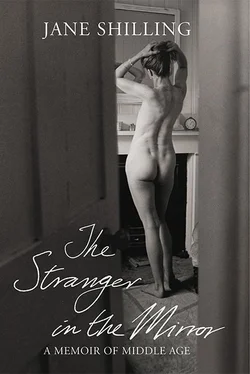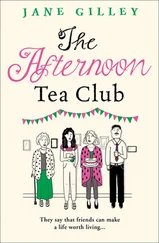Leigh Fermor makes the point that prayer is the defining quality of the monastic life. Without faith, a withdrawal from the world is, essentially, narcissistic. Without a purpose wider than the refinement of one’s own interior life, an absorption, however rapturous, in landscape, music, art or poetry is doomed to a reductive solipsism: what one adores in these things turns out to be, essentially, a grandiose reflection of the inside of one’s own mind.
This is the note of foreboding sounded by Colette and Lorna Sage in their descriptions of their childhood nature worship: both child-selves were aware of a self-consciousness, a lack of fulfilment, a taint of boredom underlying their pastoral reveries. If trees and fields and skies are easier to love than people – less disappointing and potentially dangerous – they also have their ways of wrong-footing you, reflecting back joke-grotesque images of yourself like the distorting hall of mirrors at the fairground.
I longed to be good, but I associated goodness with emotional generosity rather than solitude. My imaginary alter ego, the calm matriarch inhabiting the ancient house on the edge of the wood, didn’t live there alone, sequestered among her plants and animals, but presided over a large household of children and friends and, somewhere about the place (though I hadn’t endowed him with any particular characteristics, beyond a certain shadowy bookishness and, to be sure, a serene competence in the hitching of tricky trailers and chivvying of reluctant loaders), a husband – an extended family, in fact.
Although I had read Middlemarch and The Portrait of a Lady , and knew, in theory, about the fatal silliness of idealising marriage, I was not convinced that it was any sillier or more dangerous than Gloria Steinem’s cute vision of the post-fertile woman as a sort of wrinkly Eloise – the ‘clear-eyed, shit-free, I-know-what-I-want, I-know-what-I-think, nine- or ten-year-old girl… with her own apartment’, of which the accounts of the ecstatically detached self-possessed menopausal woman seemed like a more sophisticated version with a richer inner life.
Martin Amis wrote in his autobiography, Experience , of the early, successful years of his father’s marriage to Elizabeth Jane Howard: ‘For a long time, the household had the confidence and humorous liberality that gathers itself around a dynamic marriage.’
That seemed to me an interesting ideal, perhaps achievable even in middle age – given kindness and patience. It is true that the confident dynamism of that marriage came to a bitter end – and even while it lasted, Elizabeth Jane Howard’s description of the domestic arrangements in her memoir, Slipstream , makes the marriage sound very much less benign than her stepson’s depiction of it: the fearful demands of the housekeeping on a generous scale, for which she somehow became solely responsible, had a lamentable effect on her writing life, and after being discovered weeping by her doctor one Sunday morning as she peeled innumerable potatoes (everyone else had gone to the pub), she ended up on Tryptosil and Valium, which stopped the crying, but were equally inimical to creativity.
But that (I told myself), was in the unenlightened Sixties, when men still entertained the delusion that it was acceptable to push off down the pub and leave a very brilliant and beautiful female writer (or even a woman with perfectly ordinary looks and no special talents) weeping into a pile of half-peeled potatoes. In my fantasy household there would be ground rules about this sort of thing. Burdensome tasks would be shared. Many hands would make light work (for the purposes of this reverie I chose not to recall the frequent bitter scenes between my son and me, when he trod mud or spilt food on my newly cleaned house, and I cursed and wept tears of impotent rage).
‘Certainly,’ wrote George Eliot of Dorothea Brooke, in the closing passage of Middlemarch , ‘these determining acts of her life were not ideally beautiful.’ The sententiousness of this used to make my university English tutor, herself a noble beauty with a fine, passionate nature, much beleaguered by domestic concerns, spit with rage. But rereading that passage in the context of my own life, the determining events of which were far from ideally beautiful, I found it hopeful.
Then I came across another passage, by the American scholar and feminist, Carolyn Heilbrun, who wrote, ‘We women have lived too much with closure – there always seems to loom the possibility of something being over, settled, sweeping clear the way for contentment. This is the delusion of a passive life. When the hope for closure is abandoned, when there is an end to fantasy, adventure for women will begin.’
Juxtaposed, these scraps from a larger, more complicated pattern – the abandonment of the perpetually deferred fantasy of a life of ‘ideal beauty’ and settling instead for affectionate imperfection – gave me a glimmer of hope that a muddled past need not necessarily mean a muddled future. With a little effort of will, I thought, I might yet free myself from the unchosen solitude of my thirties and forties. But still I stood at the fork in the road and hesitated, unable to decide what to do.
While I was absorbed in this reverie of the future, something more dangerous was happening (more dangerous than love? Perhaps). There was a change of editor at the newspaper where I had a freelance contract. It had happened once before during the years I had been at the paper, but that transition had been so quietly accomplished, with so few casualties, that this time I felt at first no particular heightening of the anxiety that is the habitual state of mind of a freelance journalist.
The new editor was said to be brilliant and cultivated: a fine linguist with ‘a hinterland’, as one of my colleagues put it (meaning that he read books). That sounded almost reassuring. In the absence of any instructions to the contrary I carried on writing, hoping that if his eye fell on the section of the paper in which my work appeared he might read and approve.
But soon there came from the direction of the newspaper office a sound of crashing and toppling, as of a considerable earthquake with many falling buildings and quantities of bodies buried beneath the rubble. My section editor of twelve years was removed from her job, along with several of her senior colleagues, and her place taken by her deputy. This was not altogether unexpected. The unexpected bit came with the redeployment.
From my listening post on the other side of the river, picking up fragments of rumour, whispered phone calls on people’s mobiles abruptly terminated as they were summoned to yet another meeting, I thought there seemed to be a whiff of cultural revolution about the process; the devising of ingenious humiliations for the old ruling cadres – making them skip a bit for the amusement of the new regime. But after a while I thought it wasn’t really personal – just the natural instinct of the newspaper industry to toy a little with those whose moment is past, as it is the instinct of a cat to toy with a mouse. Still, it is an unusually philosophical mouse that finds much consolation in that thought.
Through it all I wrote on, waiting for something to happen. I didn’t know what else to do, and writing took my mind off the gnawing worry that was the alternative. Soon enough, my turn came. I was invited into the office for coffee with the new section editor. Coffee, I thought, sounded ominous. Lunch would have been more encouraging. But no, I was told by various friends who had managed to hold on to their jobs, coffee was the new lunch. It didn’t necessarily presage anything bad.
What shall I wear? I asked, thinking of the terrible ideas meetings with me in my bag-lady chic among the sharp ambitious girls in their tight skirts. ‘At this stage,’ said a friend who was an editor on a different paper, ‘I really don’t suppose it matters.’ On second thoughts, she added, ‘Don’t wear jewellery. It looks old-fashioned.’
Читать дальше












